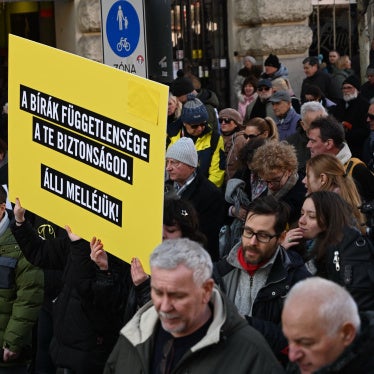MOSCOW -- This weekend President Vladimir Putin is throwing a big birthday bash for his hometown, St. Petersburg. Heads of state and government from 45 nations, including President George W. Bush and the leaders of all current and acceding European Union countries, will take part in an extravaganza of official ceremonies, tours, concerts and dinners.
What other president has received such a grand endorsement from just about every major world leader and right at the start of a campaign for re-election? No doubt the visiting leaders are aware that they are doing Putin an exceptional favor. But will they seek concessions in exchange, especially for Chechnya? While wining and dining in St. Petersburg's splendor, they should remember the black pages of their host's first term as president.
In 1999, as prime minister, Putin sent Russian troops to Chechnya, ostensibly to bring peace and stability to that troubled region. But the troops' brutal force quickly alienated a population already gasping for peace. Four years on, Russian troops and Chechen rebels are still engaged in a bitter guerilla war, with civilians the primary victims.
Recently released statistics on murders and so-called disappearances show that Chechnya is among the most dangerous places on earth. At 110 to 140 murders per 100,000 inhabitants, Chechnya's murder rate last year outstripped that of Colombia, where 77 murders per 100,000 inhabitants were recorded. Chechnya's murder rate is more than five times higher than St. Petersburg's, more than 20 times higher than in the United States, and from 50 to 100 times higher than in EU countries.
Chechnya is also a world leader in disappearances. Over the last three years, hundreds of people taken into custody by Russian troops have disappeared, though in some cases their mutilated dead bodies have been found. Recently, officials in Chechnya have come forward with shocking new statistics on disappearances: since the beginning of 2003 at least 60 people have disappeared every month.
Yet Putin rejects all criticism of his troops' behavior in Chechnya, asserting that Russia's military operation is its contribution to the U.S.-led war on terrorism. Just last week, Putin inferred a link between two suicide attacks in Chechnya and the terrorist attack in Riyadh, saying the handwriting of the terrorist acts in Chechnya and Saudi Arabia is absolutely the same.
There may indeed be a link between Chechnya's rebels and Al Qaeda. The question is whether that link exists despite, or because of, Russia's operation in Chechnya. In Chechnya's traditionally secular society, the spread of Islamic fundamentalism which is still rejected by the majority of Chechens has coincided with Russia's military operations. It is thus unclear whether Russia's operations in Chechnya contribute to the war on terrorism or undermine it.
Nobody wants to spoil a party. But the leaders visiting St. Petersburg should confront the reality that Chechens live in misery, wondering from one day to the next whether masked men will come in the middle of the night and take their loved ones away. The assembled heads of state should demand that Russian forces conduct operations in a way that will protect, not alienate, Chechens.







